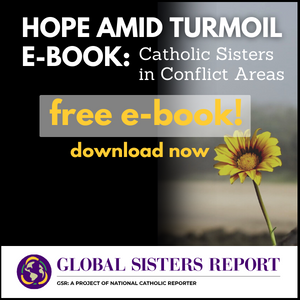As South Sudan voted for independence last January, I picked up Dave Eggers’ What is the What?, which tells the story of Valentino Achak Deng, one of the Lost Boys of Sudan. It’s difficult to grasp the suffering the Sudanese have experienced for 30 years. Yet as I read of the trek across deserts, of watching friends die and thinking he was next, I was buoyed by the hope that things had turned around in Sudan. The South had voted to become its own state as of July 9, and Khartoum, the center of the power in the North had allowed the vote to proceed peacefully.
Moreover, I read stories of the Catholic Church’s efforts to make the vote peaceful with pride. Claretian Father Callistus Joseph is a member of a coalition of religious orders called Solidarity with Southern Sudan, and he wrote a blog post for us about the joy of the referendum.
But this weekend Joseph sent an appeal through the Claretian network on the news that two religious workers have been killed. Here’s his message:
“The situation is becoming more alarming and it is not sporadic as people think. It is systematic. A few minutes ago John Ashworth came into our office and I asked him if we should ask religious in other parts of the world to start lobbying for an urgent look at this situation by calling their members of Parliament or their representative. He said it would be good to do that so that these incidents will not be treated as isolated incidents but as a systematic method of ethnic cleansing that North had use for many years and had a respite during CPA.
“The spread of violence to Nuba and then to the border of Unity state puts Malakal in between the two and perhaps could be the next source of conflict. Please start alerting the congregations and request them to call their representative in respective countries to bring this issue to the fore. Attention towards so many uprisings in many Arab countries may help prevent the North from getting away with these brutal inhumane attacks on civilians.
“Please also ask for prayers for Peace in Sudan and for a peaceful transition for this newest nation.”
This is not merely an issue of concern for the Sudanese. The conflict rests largely in access to oil, and the United States and China both have played a large role. This is a country, after all, that harbored Osama bin Laden.
But more than economic and security interests, faith and our common humanity have made Americans pay attention to the Sudanese civil war and the genocide in Darfur. They mystical body of Christ has always united us across oceans, but now with a simple email, a missionary can mobilize this body. As Joseph says, Sudan could use our prayers, but it could also use our action.









